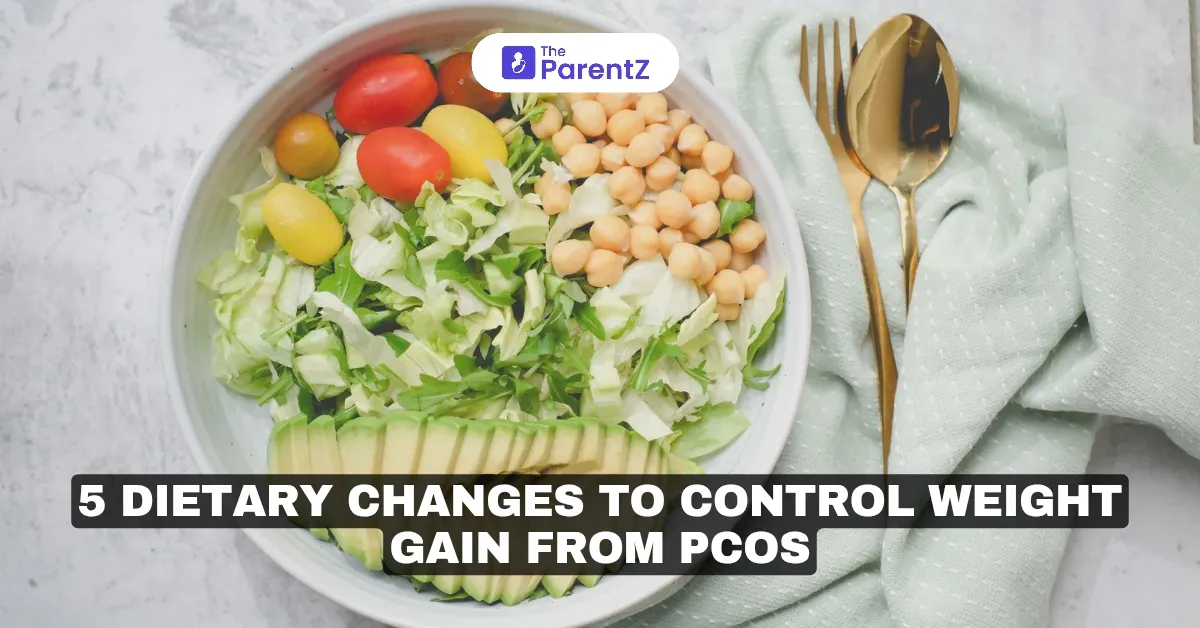Are you struggling with weight gain due to PCOS? Well, according to the National Institutes of Health, polycystic ovary syndrome (PCOS) affects about 13 percent of women of reproductive age. And indeed, one of the biggest concerns with PCOS is managing weight. This is because hormonal imbalances make it even more difficult to lose weight and easier to gain it. Yes, even when you’re doing everything right.
However, the fact is—your diet can make a big difference when it comes to controlling weight gain from PCOS. How? The right foods can stabilize insulin levels, reduce inflammation, and support metabolism.
Here are five dietary changes that can help you better manage your weight when you have PCOS.
Prefer a Low-Glycemic Diet
PCOS is very closely related to insulin resistance. In simple words, it means your body struggles to use insulin effectively. This eventually leads to higher blood sugar levels and, hence, weight gain and difficulty in losing weight. However, by maintaining a low-glycemic index (GI) PCOS diet and incorporating whole grains, non-starchy vegetables such as broccoli, spinach, bell peppers, beans, lentils, avocados, and nuts, you can keep your blood sugar levels stable. The result? Reduced hunger.
However, make sure to avoid processed carbs, which are commonly found in white bread, pasta, sugary cereals, sweets, sugary drinks, and highly processed snacks.
Increase Protein Intake to Reduce Cravings
One of the biggest problems with PCOS weight gain is constant cravings, especially for carbs and sugar. However, protein ensures you stay fuller for longer while also preventing blood sugar spikes.
Thus, it becomes important to increase your protein intake and incorporate high-protein diets that can reduce appetite, ultimately resulting in better weight management.
Furthermore, pairing protein with fiber-rich carbs also helps keep blood sugar stable while ensuring weight control.
Cut Down on Dairy and Refined Sugar
Dairy and sugar are a downright no when you have PCOS. While not all women react the same way, in some, high dairy intake can increase insulin levels, which might make weight loss difficult.
In fact, refined sugar is even worse. It may spike blood sugar and increase cravings. And you’ll probably end up gaining more weight. According to the American Heart Association, the recommended limit of added sugar for women is no more than 25 grams—nearly about six teaspoons per day.
Instead, consider switching regular cow’s milk with almond or oat milk; flavored yogurts for plain Greek yogurt; white sugar with natural sweeteners like honey or stevia; and processed snacks with nuts, seeds, or dark chocolate.
Add More Anti-Inflammatory Foods
PCOS is not just a hormonal disorder! Did you know women with PCOS often experience higher levels of chronic inflammation, all of which result in weight gain and hormone imbalances?
Therefore, eating more anti-inflammatory foods can actually help reduce these effects, thereby making weight management slightly easier.
Moreover, adding these foods can also help reduce bloating and promote weight loss naturally.
Portion Control Without Starving Yourself
One of the biggest mistakes many women with PCOS make when trying to lose weight is eating too little. In fact, restricting calories too much can actually slow down your metabolism and increase hunger hormones. This eventually makes cravings worse.
The best approach is to focus on portion control and balanced meals. The tip is to use smaller plates or fill just half your plate with veggies that are low in calories but high in nutrients. Simultaneously, eating slowly will actually work as a fullness signal for your brain.
These simple tips will certainly help reduce overeating and improve weight loss without a stressful diet.
Conclusion
Weight gain in women with PCOS is often common due to hormonal imbalances. However, simple dietary changes in your daily routine can actually make a noticeable difference.
If you still struggle with weight gain despite dietary changes, consider speaking with your dietitian for personalized guidance.





Be the first one to comment on this story.